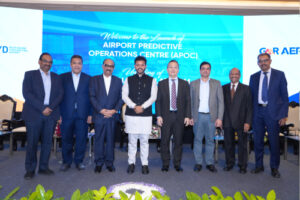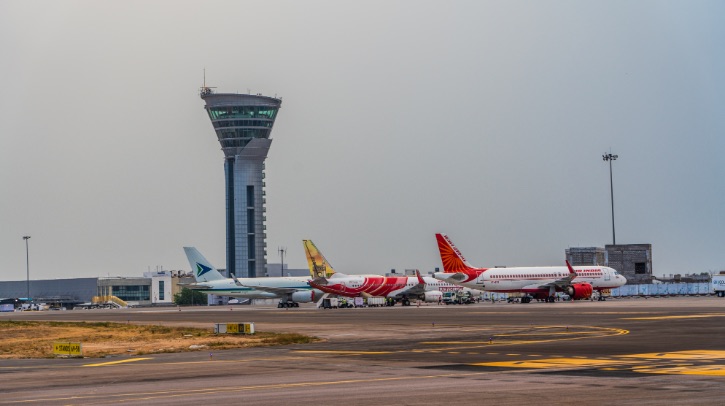GMR Airports has launched an AI-powered digital twin platform at Rajiv Gandhi International Airport in Hyderabad, aiming to revolutionize airport operations and transform the passenger experience. According to Gulte.com, the airport also plans to build an additional terminal and runway to prepare for the projected increase in passenger traffic from 34 million passengers in 2024 to 45 million by 2030.
Digital twin features

The digital twin platform can run virtual simulations for various operational scenarios, enhancing airside efficiency and supporting proactive decision-making. For landside operations, its Smart Traffic Monitoring feature reduces traffic congestion and improves passenger handling through early detection of issues. Real-time IoT monitoring and improved traffic planning streamline parking operations and enhance road safety.
The platform employs real-time analytics to optimize passenger flow and security, reducing congestion and enhancing safety. Additionally, its flow and queue analytical tools reportedly improve terminal operations by boosting throughput, reducing wait times and minimizing missed flights. It also analyzes passenger experience. Specifically, high-visibility areas are optimized to support special needs, ensuring a more inclusive and comfortable journey.
With this data, the platform provides real-time insights to enhance throughput, gate use and dwell times through continuous monitoring. The technology also looks at behavior to strengthen security and passenger flow and ensure a smooth and secure travel experience.
Collaborative decision-making

By leveraging digital technologies, artificial intelligence and real-time prescriptive analytics, GMR Airports aims to transform the passenger journey, ensuring seamless experiences at every touchpoint. The NextGen Airport Predictive Operation Centre (APOC) powered by a digital twin platform integrates multiple stakeholders, including airlines, ground handlers and air traffic control, fostering collaborative decision-making and comprehensive situational awareness. It integrates airside, landside and terminal operations into a unified system, using real-time data to optimize decision-making, minimize disruptions and ensure seamless operations. This holistic approach ensures proactive responses to operational challenges, ultimately delivering unparalleled efficiency, safety and passenger satisfaction.
This facility brings real-time synergy between various stakeholders within the airport ecosystem, marking a new step in airport management. The digital twin platform will be adopted in phases as the standard operating model across all GMR-operated airports.
S G K Kishore, executive director (South) and chief innovation officer at GMR Airports, said, “GMR Group is leading the aviation industry with cutting-edge technological innovations, focusing on significantly enhancing passenger experiences. Our new AI-enabled digital platform and the Airport Predictive Operation Centre (APOC) set new standards in modernizing operations and elevating passenger satisfaction. By integrating real-time data and advanced analytics, we ensure smooth passenger flow, reduced wait times and personalized services, shaping the future of air travel with unparalleled efficiency and safety.”
In related news, Rajiv Gandhi International Airport in India recently launched a General Aviation Terminal tailored exclusively to private jet owners and users. The new terminal caters to the needs of passengers on chartered flights for business or personal travel. Click here to read the full story.


